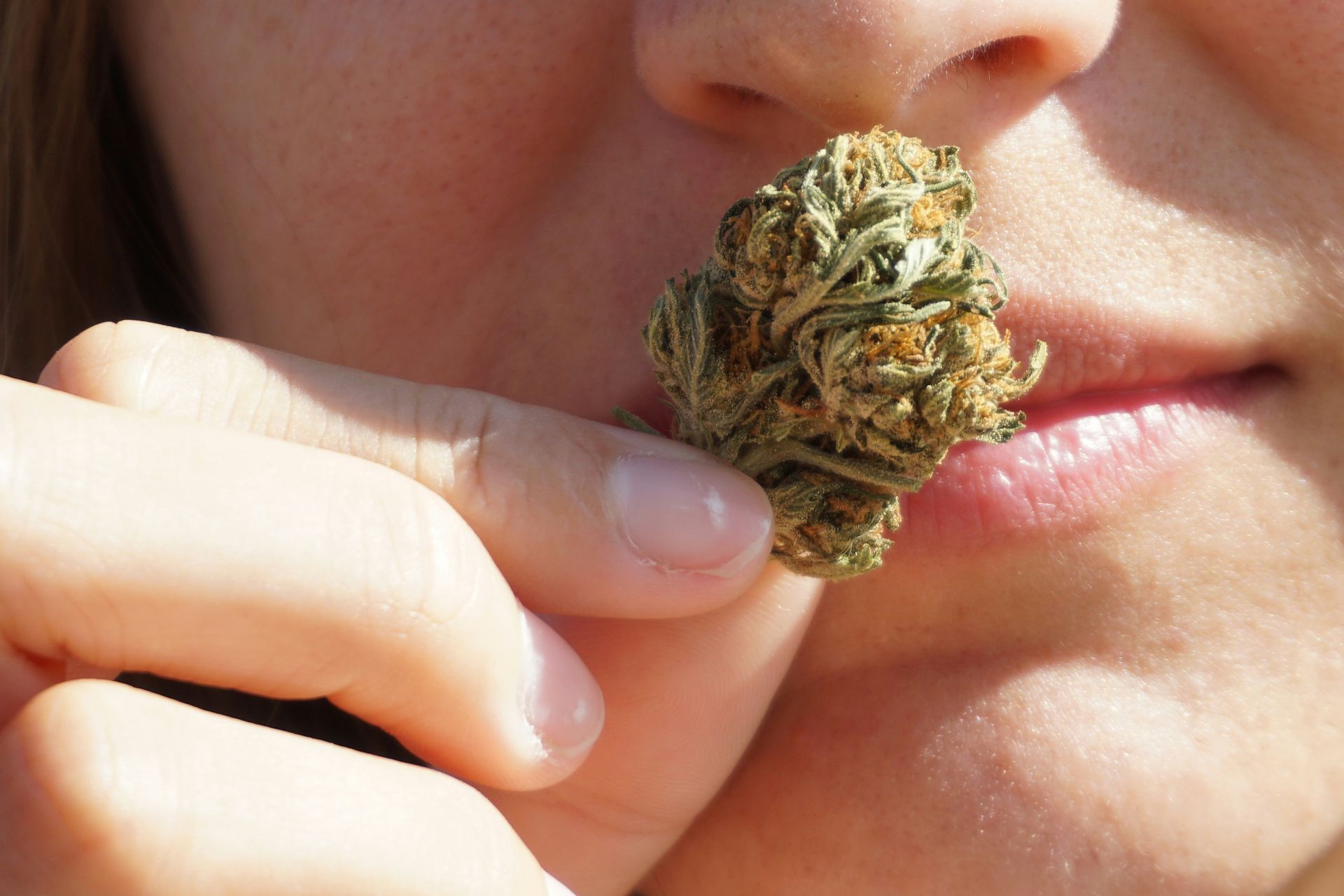
Talking about personal topics like marijuana use with friends and family can feel like walking a fine line. Whether you're eager to share your journey with cannabis or nervous about how it might be received, navigating this conversation requires thoughtfulness and understanding. The way you communicate can shape perceptions, strengthen trust, and clear up misconceptions. In this blog, we’ll explore how to approach these discussions with confidence, honesty, and respect, ensuring your loved ones understand your perspective while fostering meaningful dialogue.
How to Discuss Your Marijuana Use with Friends and Family: A Guide to Open Conversations
Talking about marijuana use with your loved ones can be a challenging situation, especially if their attitudes to drug use differ from yours. Whether you use cannabis for medical reasons or recreationally, opening lines of communication is essential for fostering understanding and mutual respect. In this guide to marijuana conversations, we’ll explore practical tips for addressing concerns, clarifying misconceptions, and sharing your perspective with empathy and honesty.
Addressing Concerns and Misconceptions About Cannabis Use in Your Family
When discussing cannabis with family members, it’s crucial to understand and address their concerns. Many families may have long-held beliefs about marijuana, often shaped by societal stigmas or negative experiences.
Here are effective ways to address concerns and misconceptions about cannabis use in your family:
Understanding Common Concerns
- Family Values and History: Family history and values play a significant role in shaping attitudes toward marijuana. If your family has experienced negative effects of substance abuse, they may associate marijuana use with harmful substance use or illicit drug habits.
- Health Risks and Misconceptions: Concerns about adolescent brain development, mental illness, and the risk of substance abuse are common. Educating your family about the positive effects, potential benefits, and medical benefits of cannabis can help shift their perspective.
- Psychoactive Substances and Behavior: Family members may worry about behavioral side effects, potential drug dependency, or marijuana addiction. Providing factual information about therapeutic effects and alternatives to drug use can help alleviate these fears.
- Academic Performance and Life Goals: Parents often associate marijuana use with poor academic performance, reduced life satisfaction, and impaired physical development. Addressing these concerns with evidence-based discussions can be a powerful way to bridge understanding.
Navigating the Conversation
Educate Yourself First
Before initiating a conversation about drugs like cannabis, equip yourself with accurate and up-to-date information. Understand the effects of marijuana use, including its positive effects, negative effects, and potential risks, such as marijuana use disorder. Be ready to discuss how regular cannabis use differs from daily marijuana usage and share the wide range of therapeutic effects it can offer for specific medical conditions.
Share Your Personal Experiences
When discussing cannabis with family, sharing personal experiences can help humanize the topic of cannabis and foster empathy. Explain how cannabis for reasons like stress relief, pain management, or social interactions has positively impacted your life.
Acknowledge Concerns
Show respect for their concerns by acknowledging potential drug risks and behavioral signs they might be worried about. Discuss protective factors that mitigate these risks, such as moderation, mindful use, and consulting medical professionals.
Be Transparent About Your Reasons
Explain whether your marijuana use stems from medical reasons, social situations, or personal preferences. If applicable, share insights from medical professionals or a health care practitioner who supports your use.
Building Understanding Through Dialogue
Highlight the Benefits of Cannabis
Discuss the potential benefits of cannabis, including its medical benefits and therapeutic effects. For example, you might explain how smoking cannabis helps alleviate troubling feelings like anxiety or supports conditions such as chronic pain. Highlight its role as an alternative to harmful substances like addictive substances or psychoactive substances with more severe side effects.
Address Misconceptions with Evidence
Misconceptions about adolescent marijuana use, the history of drug stigma, and the behavioral side effects of marijuana users are common. Use credible sources to clarify these claims about cannabis and discuss its wide range of applications. For example, emphasize how the medical condition of a patient can influence their approach to life with cannabis.
Discuss the Science
Educate your family about the science of cannabis, including its effects on brain connections, the adolescent brain development process, and the association with people’s life satisfaction. Share how the therapeutic benefits of cannabis may outweigh some perceived risks when used responsibly.
Balancing Different Perspectives
Respect Their Attitudes to Drug Use
Your family’s perspective on cannabis may differ from your own. Show respect for their attitudes to drug use, even if you don’t agree. Emphasize that your marijuana use aligns with your personal values, medical needs, or approach to life.
Maintain Strong Bonds with Parents
Strengthen the bond between parent and child by involving them in your journey. For instance, share resources for parents about cannabis and explain how your use aligns with family values. Transparent communication fosters trust and reduces tension.
Understand Peer Pressure and Social Dynamics
Your family might worry that social interactions or peer pressure influenced your decision to use cannabis. Explain how you’ve made informed, independent choices and avoided bad experiences by staying mindful of your limits.
Providing Resources and Support
When discussing marijuana use, offer your family resources to learn more. For example:
- Educational Materials: Provide resources for parents or articles about the therapeutic effects of cannabis and its potential benefits.
- Medical Insights: Share input from a health care practitioner or research that addresses adolescent brain development and potential drug risks.
- Support Networks: Suggest joining communities or forums where families discuss the positive effects and therapeutic effects of cannabis use.
Managing Challenging Reactions
If the conversation leads to troubling feelings or disagreements, stay calm and empathetic. Reaffirm your commitment to maintaining open communication and addressing their concerns thoughtfully.
Teaching Adolescents About Cannabis
If you’re a parent, discussing cannabis with your children requires a careful approach. Conversations about adolescent marijuana use should focus on education, protective factors, and the potential benefits of informed choices. Highlight the following:
- The risks of adolescent marijuana use on brain connections and academic performance.
- The variety of factors influencing substance use, such as peer pressure and social interactions.
- The importance of making responsible choices and understanding claims about cannabis.
Promoting Healthy Attitudes
Instill a balanced attitude toward marijuana by discussing both its potential benefits and its risks as a harmful substance. Encourage open conversations and provide alternatives to drug use for stress relief or enhancing physical development.
Wrapping Up the Conversation
Having an honest and respectful conversation about marijuana use with your family can strengthen bonds, improve life satisfaction, and create a foundation of trust. Whether discussing cannabis with people who are skeptical or educating loved ones on its effects, approach the topic with empathy, knowledge, and openness.
By addressing misconceptions, providing evidence-based insights, and sharing your personal experiences, you can foster a supportive environment where your marijuana use is understood and respected. Remember, the goal is to create a space where everyone feels heard, valued, and informed—a step toward a healthier and more informed perspective on cannabis use.






